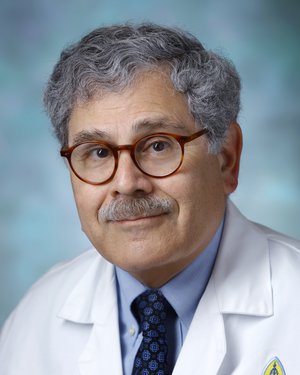Research Lab Results
-
Center for Epithelial Disorders
The Johns Hopkins Center for Epithelial Disorders focuses on research into the physiology and pathophysiology of epithelial cells (cells that line the cavities and interior surfaces of the body) of the gastrointestinal (GI) tract, liver, pancreas and kidney. Specifically, the center’s research seeks to: -Understand the mechanisms regulating the activity of transport proteins (including channels) of epithelial cells Characterize the mechanisms by which polarity of epithelial cells are maintained -Investigate the mechanisms controlling transcription of epithelial-specific genes Understand the pathophysiological basis of GI and renal diseases that involve the preceding three components -The center also provides a framework for training fellows in gastroenterology and hepatology to become independent investigators. The center is funded primarily through individual investigator-initiated extramural research grant support from the National Institutes of Health (NIH) as well as multi-investigator grants including RO1, PO1, UO1 and R24.
-
Joanna Peloquin Lab
The Joanna Peloquin Lab focuses on inflammatory bowel disease (IBD). We're working on individualized care for IBD patients through functional genomic studies, specifically those related to diet, host and microbiota interactions.
-
Conte Digestive Diseases Basic and Translational Research Core Center
Hopkins Conte Digestive Diseases Basic and Translational Research Core Center is an NIH/NIDDK funded, institutionally supported center that has as its mission, to make gastrointestinal studies at Hopkins as outstanding as possible, by encouraging helping develop interactions between Hopkins basic and translational investigators. The Center consists of an Administrative Core, four scientific Cores, an Enrichment Program, a Pilot and Feasibility Project Program, and services a Research Base of ~60 Hopkins faculty investigators. Co-Director, Mark Donowitz, MD Co-Director, Svetlana Lutsenko, PhD
-
Eun Ji Shin Lab
Research interests in the Eun Ji Shin Lab include clinical research on obesity and the effect on GI neoplasia/malignancy.
-
Florin Selaru Lab
Research interests in the Florin Selaru Lab comprise the molecular changes associated with the transition from inflammatory states in the GI tract (colon, stomach, biliary tree) to frank cancers. In addition, our current research—funded by the AGA, FAMRI and the Broad Foundation—works to further the understanding of cancer development and progression in the gastrointestinal tract.
-
Intestinal Chloride Secretion
Intestinal chloride secretion is stimulated during diarrhea. Cholera toxin is secreted by bacterium Vibrio cholera and is responsible for the watery diarrhea after cholera infection. Mechanistically, cholera toxin increases intracellular cyclic AMP, which subsequently activates protein kinase A and the cystic fibrosis transmembrane regulator chloride channel (CFTR). However, we recently identified an intestinal cAMP-Ca cross-talk signaling pathway that is initiated by elevation of intracellular cAMP and subsequently elevates intracellular Ca concentrations through the exchange protein activated by cAMP (Epac). This observation suggests that both CFTR and calcium-activated chloride channels are targets of elevated intracellular cAMP signaling molecule. Therefore, we are studying the role of calcium-activated Cl channels in intestinal chloride secretion under physiological conditions and during diarrhea. We are also determining whether the recently identified transmembrane protein 16 family of proteins, which are calcium-activated chloride channels, is also involved in intestinal chloride secretion in addition to the well characterized CFTR channel. Increased understanding of regulation of intestinal Cl secretion provides the necessary background information for the development of therapeutic drugs for the treatment of diarrhea, constipation and cystic fibrosis. The discovery that calcium-activated chloride channels are involved in intestinal chloride secretion provides additional targets for anti-diarrhea drug development.
-
Intestinal Na/H Exchangers
Secretory diarrhea is a leading cause of childhood morbidity and mortality in developing countries. While diarrhea can be treated with oral rehydration solution (ORS), inclusion of zinc with oral ORS has been shown to reduce the duration of diarrhea. However, how zinc improves diarrhea is not known. It has been shown that zinc acts as an intestinal epithelial cell basolateral potassium channel blocker of cyclic AMP-mediated chloride secretion. We discovered that zinc also stimulates intestinal sodium and water absorption via the epithelial Na/H exchanger, NHE3. Zinc reverses the effect of cyclic AMP inhibition of NHE3 activity. The effect of zinc on NHE3 cannot be duplicated with other divalent metal ions. It has been well established that Na/H exchanger regulatory proteins are involved in NHE3 regulation. Whether these regulatory proteins are involved in zinc stimulation of NHE3 is a focus of our study. Our goal is to reveal mechanisms to explain how zinc improves diarrhea and to understand the role of zinc in salt and water homeostasis in the gut. Our study will provide a scientific basis to justify the inclusion of zinc in ORS for the treatment of secretory diarrhea.
